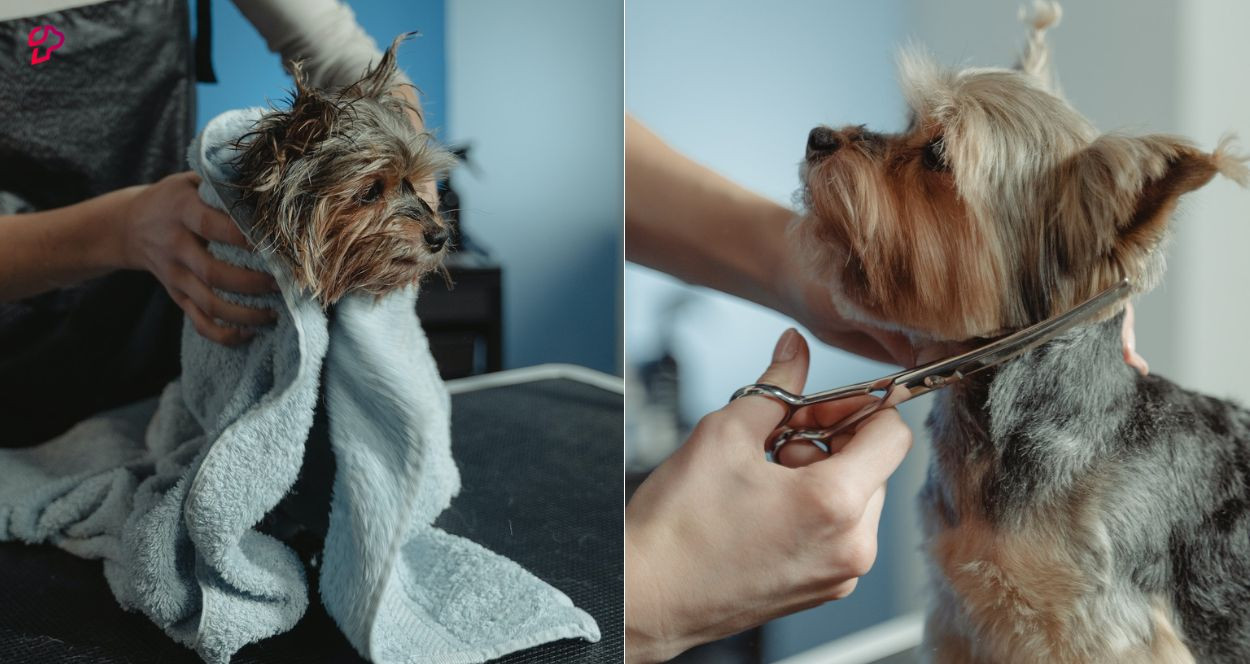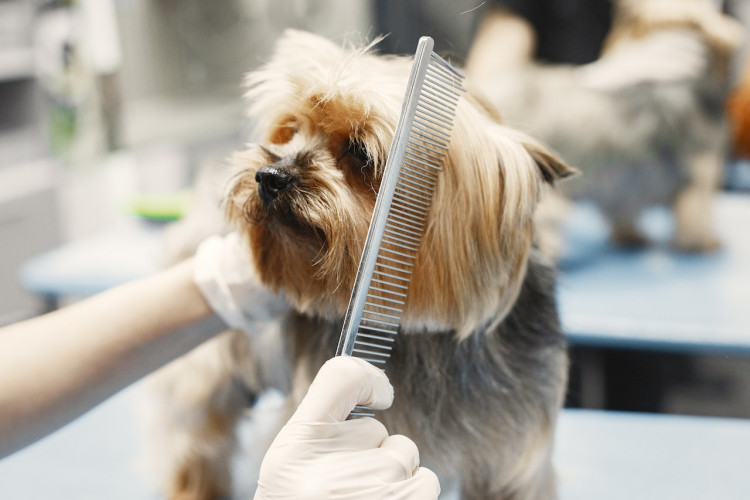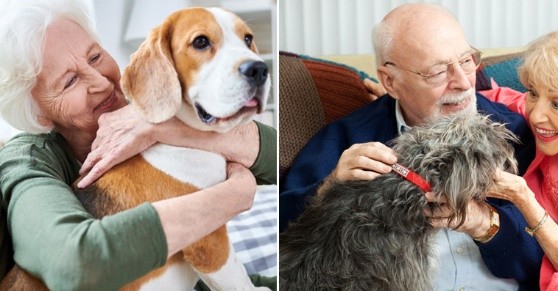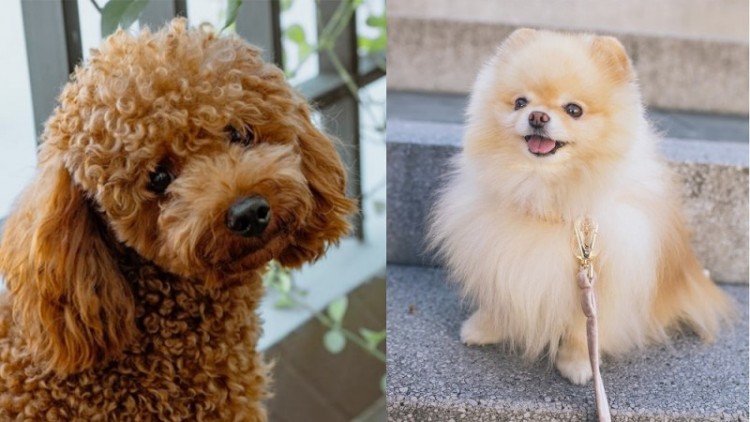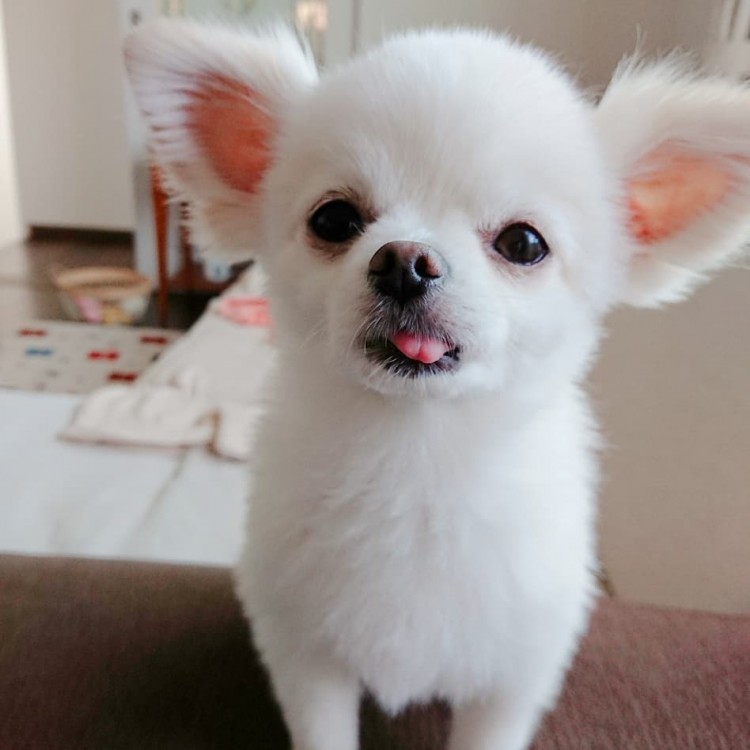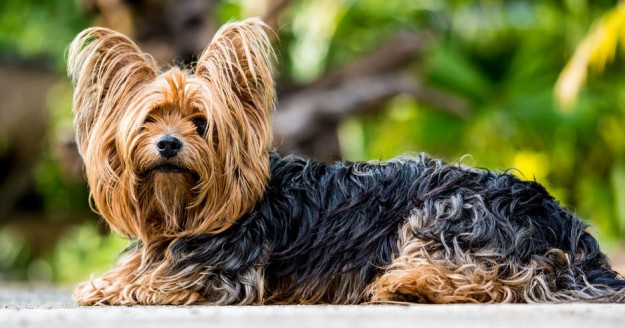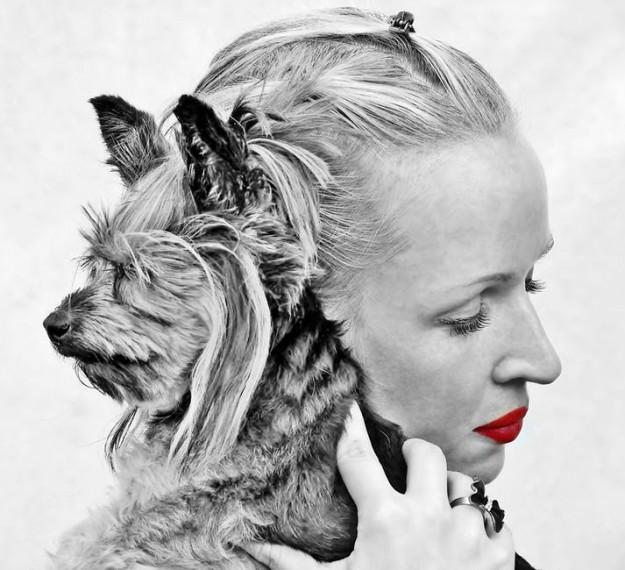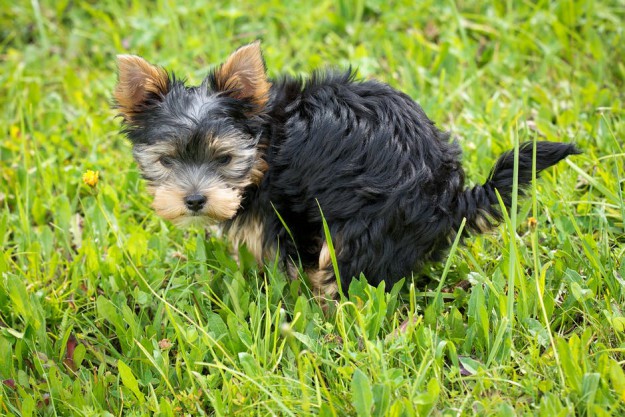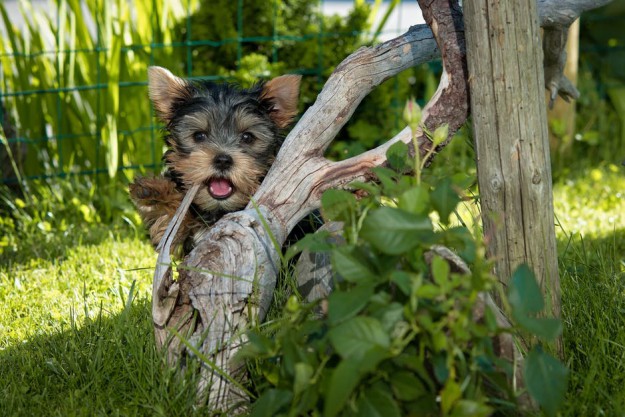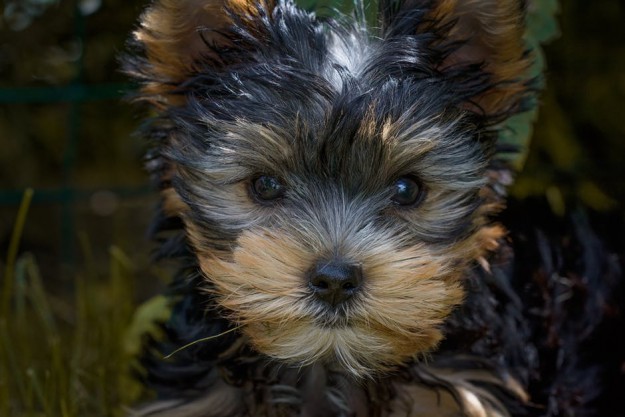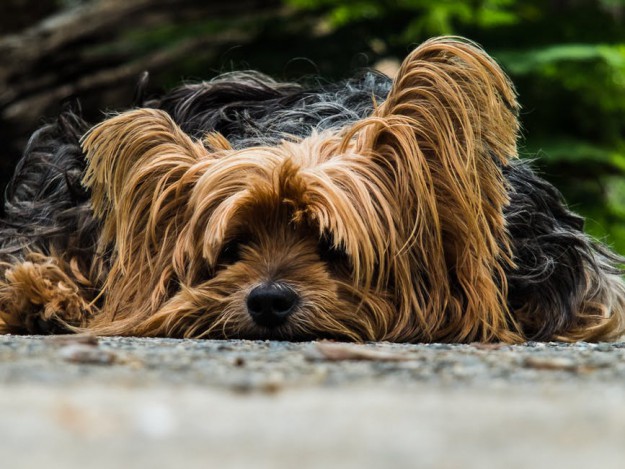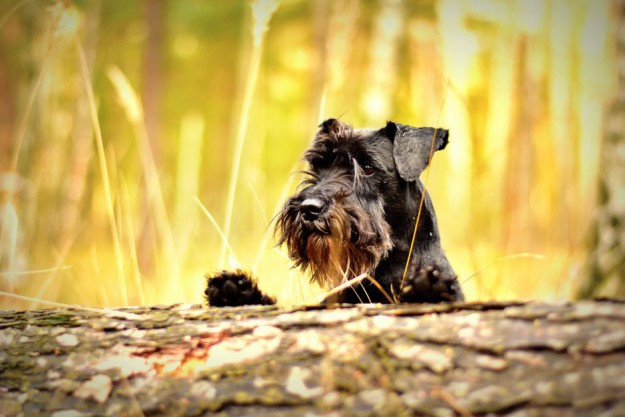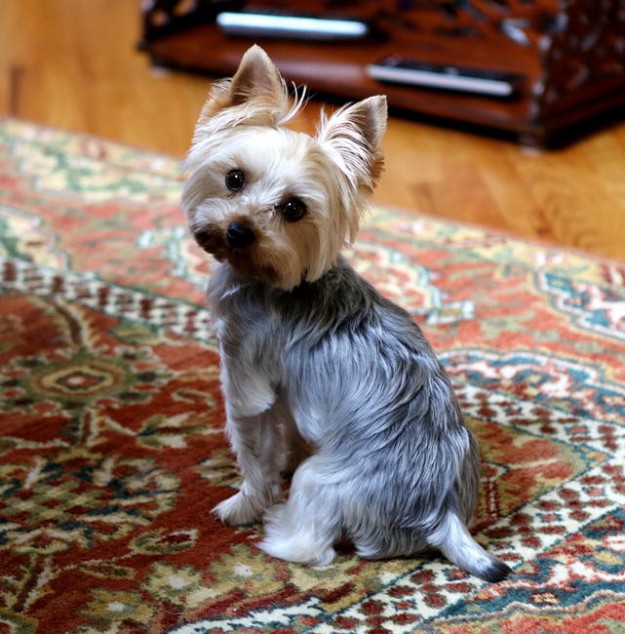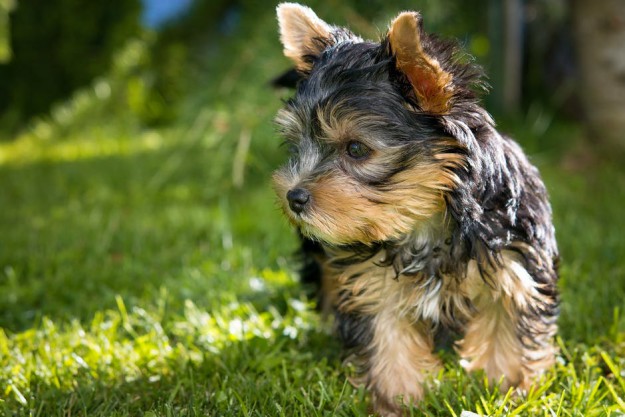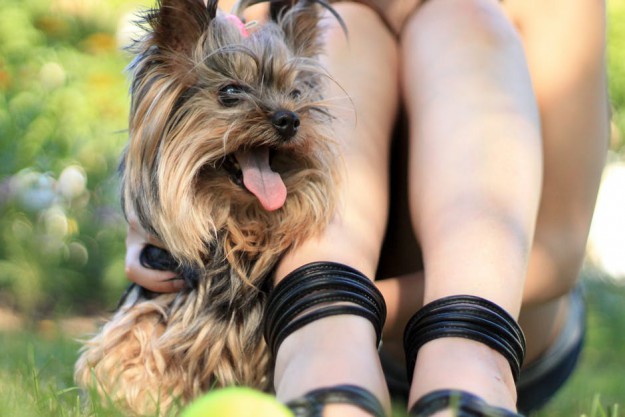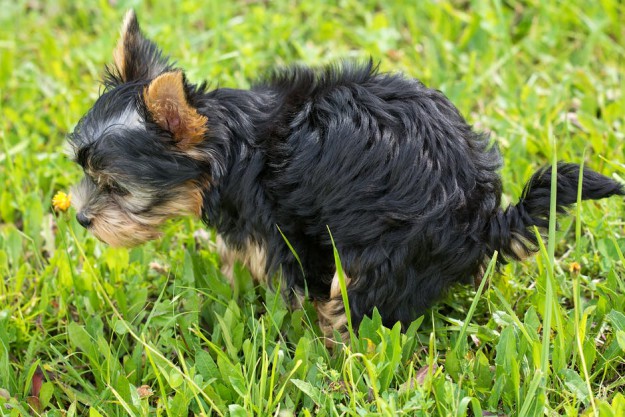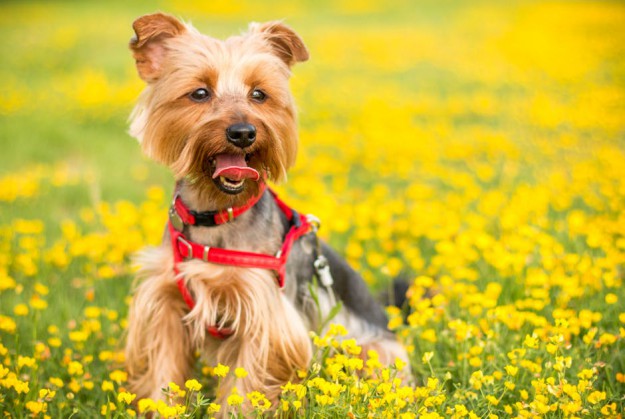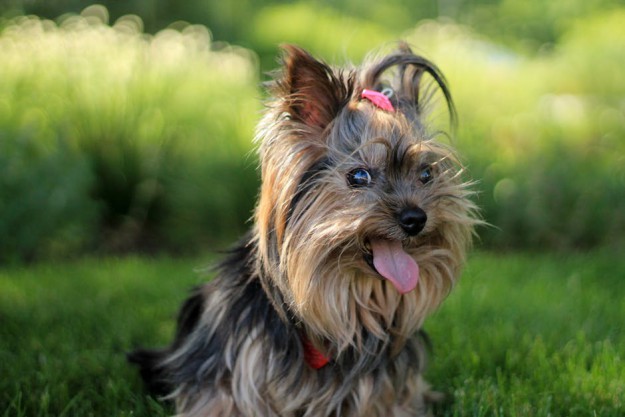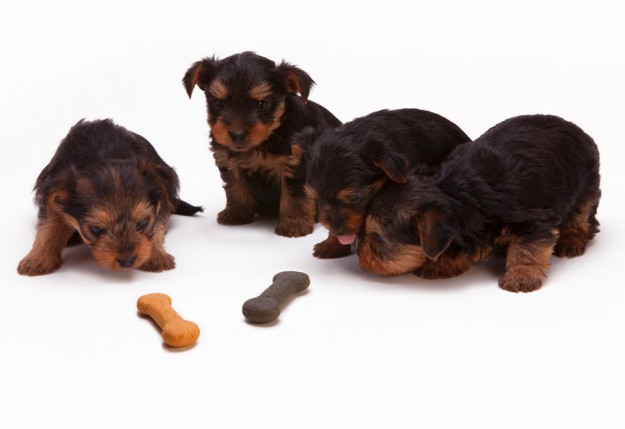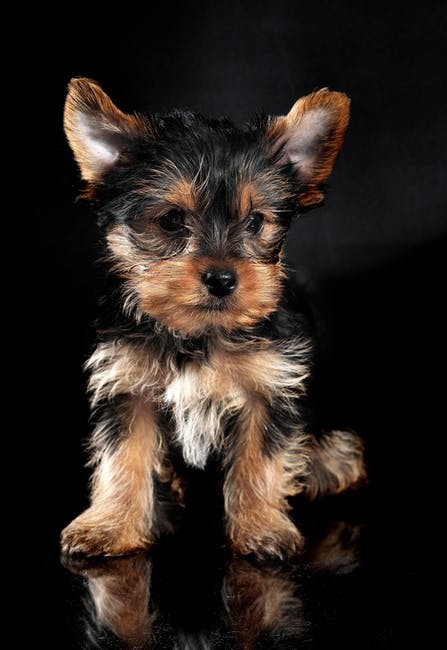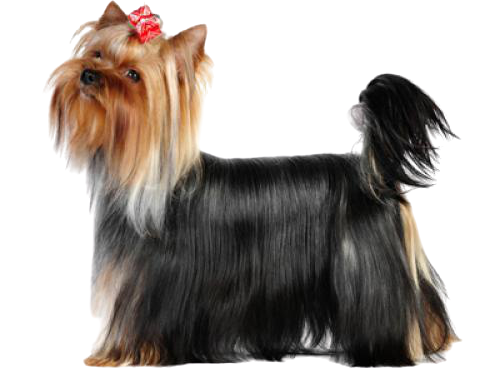
Yorkshire Terrier
USD $600-$1000 Price Avg.
Companion Dogs
Group
Purebred
Breed Type
Small
Size
12-16 years
Lifespan
Breed Information
| Group | Companion Dogs |
|---|---|
| Popularity/Rank | 9 |
| Origin | England |
| Other Names | Yorkie |
| Breed Type | Purebred |
| Price (Avg.) |
USD $600-$1000
How much does it cost to purchase a Yorkshire Terrier? The price of a Yorkshire Terrier will vary from breeder to breeder as well as from place to place. As a rough guide, you should expect to pay between $600 to $1000 per Yorkshire Terrier if you purchase from a reputable breeder. Prices will be higher for show-quality dogs with a distinguished pedigree. Adult dogs who have already been trained may cost even more. It is usually less expensive to adopt a Yorkshire Terrier through a shelter. |
| Size | Small |
| Weight | 2-3 kg (4-7 pounds) |
| Height | 20-23 cm (8-9 inches) |
| Lifespan | 12-16 years |
| Recognized by |
AKC, FCI
The American Kennel Club in 1885 as a Toy breed. And FCI in the Terriers group, in the Toy Terriers section. |
| Purpose | Small Vermin Hunting |
| Date of Origin | 1800s |
| Ancestry | Dandie Dinmont Terriers, Manchester, Paisley, Skye, Waterside |
Appearance & Maintenance
| Coat | Fine |
|---|---|
| Coat Colors | Black, Blue, Gold, Tan |
| Grooming Level | |
| Shedding Level | |
| Eye Color Possibilities | Brown |
| Nose Color Possibilities | Black |
| Coat Color Possibilities | Black, Blue, Fawn, Silver |
| Coat Length | Large |
| Coat Density | Normal |
| Coat Texture | Straight |
| Recommended Brushes | Comb, Nail Clipper, Pin Brush |
| Brushing Frequency | Daily |
Breed Characteristics
| Temperament | Alert, Brave, Courageous, Daring, Energetic, Independent, Intelligent, Loyal, Playful, Sportive, Vigilant |
|---|---|
| Intelligent | |
| Trainability | |
| Playfulness | |
| Sensitivity Level | |
| Affection Level | |
| Social Interaction Required | |
| Barking | |
| Watchdog Ability | |
| Territorial | |
| Biting Force | Low |
| Mouthiness | |
| Impulse to Wander or Roam | |
| Prey Drive | |
| Adaptability | |
| Tolerates Being Left Alone | |
| Fighting Dog | Not really |
Good & Friendly with
| Apartment Life Friendly | |
|---|---|
| Stranger Friendly | |
| Kid-Friendly | |
| Cat Friendly | |
| Dog Friendly | |
| Office Friendly | No |
| Senior Citizens Friendly | |
| Pet Friendly | |
| Friendly with First Time Owners | No |
| Service Dog | Not really |
| Therapy Dog | Yes |
| Detection, Sniffer or Security Dog | Not really |
| Search and Rescue Dog (SAR) | Not really |
| Boat Dog | Not really |
| Cart Pulling or Drafting Dog | Not really |
Health Elements
| Health Issues | |
|---|---|
| Health Problems | Collapsed Trachea, Hypoglycemia, Patellar Luxation, Portosystemic Liver Shunt, Progressive retinal atrophy (PRA), Reverse Sneezing |
| Hypoallergenic | Yes |
| Energy Level | |
| Exercise Required | |
| Sleeping Required | |
| Weight Gain Potential | |
| Weather & Climate | Prefers average to warm weather conditions |
| Stinkiness | Medium |
| Drooling tendency | |
| Activity Level | Moderate |
| Rec. Walk Mileage Per Week | 6 miles |
| Minutes of Activity Per Day | 30 minutes |
Food & Costing
| Avg. Daily Food | Recommended daily amount: 1/2 to 3/4 cup of high-quality dry food a day, divided into two meals. |
|---|---|
| Cups Per Day | 1 cups |
| Daily Cost | $0.75 - $1.00 |
| Monthly Cost | $20.00 - $30.00 |
Reproducibility
| Gestation Duration | 60-64 days |
|---|---|
| How often can the Yorkshire Terrier have a litter? | Once a year. |
| Litter Size | 4-6 puppies (Once a year.) |
Description
The Yorkshire Terrier is a small, toy-sized breed of dog that has become increasingly popular in recent years. This breed is known for its long, silky coat and its friendly personality. The Yorkshire Terrier is a loyal companion and makes an excellent pet for families with children or other pets.
Appearance: The Yorkshire Terrier has a long, silky coat that can be either black and tan or blue and tan in color. They have a small head with large eyes, ears that stand erect, and a muzzle that tapers to the nose. Their tail is usually docked short but can be left natural if desired.
Lifespan: The average lifespan of the Yorkshire Terrier is 12-15 years when properly cared for.
Size: The average size of the Yorkshire Terrier is 8-9 inches tall at the shoulder and weighs between 4-7 pounds when fully grown.
Weight: The average weight of the Yorkshire Terrier ranges from 4-7 pounds when fully grown.
Colors: The most common colors for this breed are black and tan or blue and tan but they can also come in other colors such as chocolate, red, silver, white, cream or sable.
Personality: The Yorkie is an intelligent breed with an outgoing personality that loves to play and explore new things. They are loyal companions who enjoy spending time with their owners but can also be independent at times as well as protective of their family members if needed. They are generally good natured dogs who get along well with other animals as well as children if socialized properly from an early age.
Friendliness: Yorkies are generally friendly towards other dogs but may not always get along with larger breeds due to their small size so it’s important to introduce them slowly to any new canine friends they may encounter while out on walks or at doggy daycare centers etc.. They tend to be very affectionate towards people they know but may bark at strangers until they become familiar with them so it’s important to socialize your Yorkie from an early age so they learn how to interact appropriately around people they don’t know yet too! As far as cats go; Yorkies usually get along fine with them provided there isn’t any food competition between them which could lead to fights breaking out!
Temperament: Yorkies have a lively temperament which makes them great companions for active families who enjoy going on walks or playing games together in the park etc.. They love being around people so much that some owners even take their Yorkies everywhere they go! However; it’s important not to overdo it because these little guys need plenty of rest too! Health: Generally speaking; Yorkies are quite healthy dogs however; like all breeds there are certain health issues which could affect your pet such as eye problems (cataracts), skin allergies (atopy) or dental issues (periodontal disease). It’s therefore important you keep up regular vet checkups throughout your pet's life so any potential problems can be caught early on before becoming more serious later down the line! Adaptability Level & Benefits Of Owning A Yorkie As Pets :Yorkies adapt well both indoors & outdoors making them suitable pets for both city & country living environments alike! These little guys make great watchdogs due to their alert nature & will bark whenever someone approaches your home - although this trait should never be encouraged by owners since excessive barking can become annoying quickly! In terms of benefits; owning a yorkie means you'll always have someone by your side no matter what you're doing - whether it's going out shopping together or just cuddling up on the sofa watching TV - these little guys will always bring joy into your life & make sure you never feel lonely again!
History
The Yorkshire Terrier is a small dog breed of terrier type, developed during the 19th century in Yorkshire, England. The defining feature of the breed is its small size. A popular companion dog, the Yorkshire Terrier has also been part of the development of other breeds, such as the Australian Silky Terrier. It is placed in the Toy Terrier section of most kennel clubs.
The ancestors of the Yorkshire Terrier included several terrier breeds from Scotland and England. These terriers were used for hunting rats and other vermin, and were also sometimes used in dog fighting. The Yorkie's immediate predecessors were two Scottish terriers, the Paisley Terrier and Clydesdale Terrier, brought to England in 1870 by Lord Tweedmouth. These two dogs were bred together, and some of their offspring were then brought to Yorkshire by workers from Tweedmouth's estate. In Yorkshire, these dogs were further bred with other local terriers, resulting in a small, black-and-tan terrier that came to be known as the Broken-Haired Scotch Terrier and later as the Yorkshire Terrier.
The Yorkie was first recognized as a distinct breed in 1874 by Englishman Huddersfield Benjamin Boothby. He wrote The Book of The Dog (1875), which included an entire chapter devoted to "Our Commonest Dogs: No. V - The Broken-Haired Scotch or Yorkie Terriers". In 1886, James Hinks of Birmingham began breeding Yorkies with Maltese dogs to produce a smaller version of the Maltese; this cross became known as the Toy Trawler Spaniel. Hinks' dogs were exhibited at Crufts Dog Show as early as 1890; however, they did not become popular until after World War II.
The Yorkie was introduced to America in 1872 by Mary Fenton of New York City; however, it did not gain widespread popularity until after World War II when servicemen returning home from Europe brought back toy dogs as gifts for their families back home. Today, the Yorkie is one of America's most popular breeds and is recognized by all major kennel clubs around the world.
Yorkshire Terrier Posts
Explore Yorkshire Terrier's photos, videos, activities, stories, and facts.




